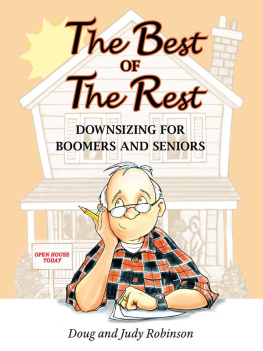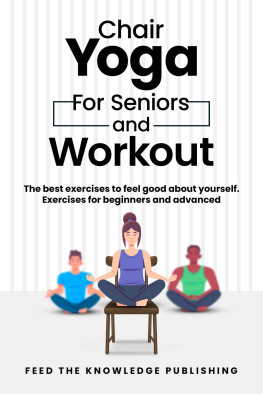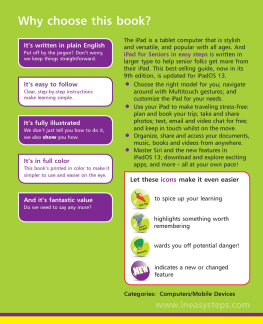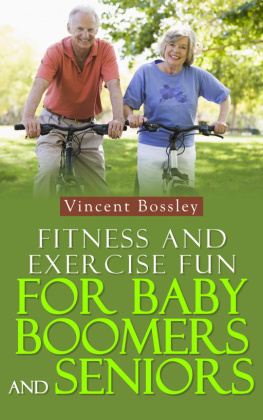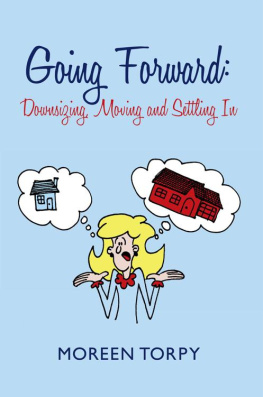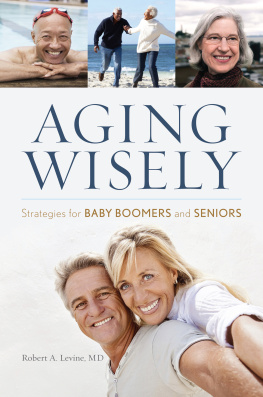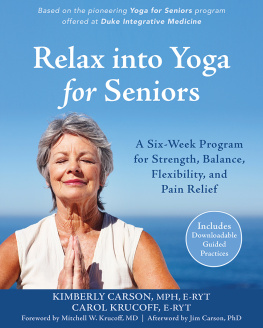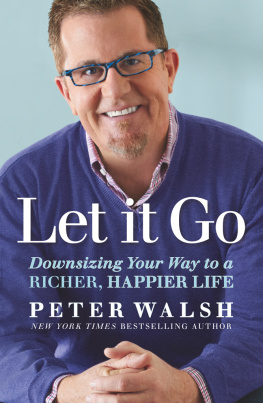
GENERAL STORE PUBLISHING HOUSE
499 OBrien Road, Box 415
Renfrew, Ontario, Canada K7V 4A6
Telephone 1.613.432.7697 or 1.800.465.6072
www.gsph.com
ISBN 978-1-77123-969-1
Copyright Doug and Judy Robinson 2012
No part of this book may be reproduced, stored in a retrieval system,
or transmitted in any form or by any means without
the prior written permission of the publisher or,
in case of photocopying or other reprographic copying, a licence
from Access Copyright (Canadian Copyright Licensing Agency),
1 Yonge Street, Suite 1900, Toronto, Ontario, M5E 1E5.
Illustrations: Gary Frederick
Design, formatting: Magdalene Carson
Published in Canada.
Cataloguing data available from Library and Archives Canada.
Contents
The Best of the Rest is dedicated to our sons, Mike and Andrew, their wives, Sue and Melissa, our daughter, Sue, her husband, Rich, and our nine wonderful grandchildren.
Acknowledgments
Thanks to Anna Christina Robinson, a very giving and caring lady, whom we first downsized.
Little did we know that it would become a second career.
Thanks to Jack Johannsen, Judys dad, who gave her the ability to dream and persevere.
Thanks to Kent Browne, whose request for a favor sent us on this wonderful journey.
Thanks to Charles Darwin Snelling, for whose interest and encouragement we are grateful.
Thanks to Paul Kitchen, sports historian and author extraordinaire, whose sage advice and fine example was most helpful and inspiring,
Thanks to Jane Karchmar, our editor. To work with Jane has been a delight!
Thanks to Tim Gordon, our publisher, for keeping us on track.
And last but not least, thanks to our numerous friends, the thousands of boomers and seniors weve guided and assisted with the downsizing process, and the many veterans weve had the pleasure of meeting and working with our heroes.
Introduction
IT WAS RAINY, WINDY, AND COLD that late fall day in 1996. A ninety-year-old gentleman had gone into a retirement residence leaving his older home jammed full of stuff. A real estate friend, who knew we had a trailer, asked if we would empty the house so he could sell it. There we were, two retired teachers, throwing forty years of hoarded treasures broken light fixtures, string, tinfoil, newspapers over the wall at the local landfill.
In the midst of this, the light came on: the realization that there must be many seniors out there who need to move but have no idea how to get out from under all those years of accumulated possessions.
We soon realized that seniors also needed specialized help with moving and getting resettled, and we made it our goal to do it as stress-free as possible.
Imagine that! An idea that would forever change our lives and bring peace of mind to so many seniors, boomers, and their families was born at the CITY DUMP !
Looking back over the years, it became clear that a wide variety of life experiences had prepared us for our second career. The ensuing years have given us additional knowledge and experience to guide our clients through the entire downsizing process gently, supportively, and compassionately.
Weve been asked to share our expertise through radio talk shows, seminars, and network and local television, as well as consulting for local, national, and international publications. All of this has allowed us to help countless unseen numbers of boomers, seniors, and their families.
We hope that Downsizing for Boomers and Seniors , the result of our accumulated knowledge and experience, will enlighten and guide you through the downsizing process as well as help you make better and more informed decisions along the way.
You may wish to read only those chapters that address your particular concerns. There are a few repetitions we felt were necessary for this reason.
Please remember that this is not legal advice this book is to help you think, organize your thoughts, and ask questions before you make any decisions or commitments. Our purpose here and throughout the book is to help you to make your own informed decisions.
CHAPTER 1
Is It Time to Move?
To move or not to move?
This is a question many people are facing as they retire and grow older. Can they afford to stay in their home? Should they buy something smaller or newer? Should they rent an apartment or buy a condo? Should they choose a community that will have support services available if and when they might need them or is a secluded spot in the country more to their liking? Its wise to explore all options and plan ahead.
Several years ago, a new retirement residence opened, and friends of ours, a couple in their seventies, went to see it. Both were in good health, but they decided if they ever had to move, this would be their choice. They put their names on a waiting list just in case and continued living very active lives.

One winter while holidaying down south, the wife was rushed to a hospital, air-ambulanced back, and told she could not return to her home. The husband phoned the residence to see if they had a two-bedroom suite and was told that all they had were two small rooms beside each other. We suggested that they take the two rooms and use one as a bedroom and the other as a living room/office until a two-bedroom suite became available. They sold their five-bedroom home, put some furniture in storage, and began settling in. Several months later, they did move into their two-bedroom suite. Advanced planning and some flexibility had served them well! It is much better to plan ahead and decide what will work for you as you grow older.
For boomers, the motivation for moving is usually optional, dictated by the end of a career and the beginning of a new adventure, or fulfilling a dream they have nurtured for years. Nevertheless, some sons and daughters will selfishly have misgivings about the decisions their parents are making.
Boomers will have a much easier time deciding what to do for themselves than guiding an elderly relative through the process. Sometimes a child feels a parent should move, when actually aging in place might be a wiser choice. Other times, a senior should move, and the family is unable to see the need. It is important to know if a loved one should move or if he/she can still have some quality time in his/her own home with the aid of medications and a support system of caring people and needed services. A geriatric assessment can help narrow down the options.
General questions
Look at the following list and identify the items that are relevant to you or your loved one.
- Is staying in your home becoming a financial strain?
- Is cash flow needed to improve the quality of life?
- Is housekeeping becoming more of a struggle?
- Is home maintenance now a nuisance or becoming increasingly unmanageable?
- Is yard work becoming a chore?
- Does the house need major repairs?
- Is the house too big?
- Are stairs getting more difficult?
- Has the neighborhood changed and is security now a concern?
- Is the location no longer convenient?
- Do you want a new lifestyle?
- Is there a desire to travel more?
- Is there a dream you want to fulfill while you still can?
- Have the children left home or are they planning to move out?
- Is there a freeloader living in the house, and your moving is the only way out?
- Has downsizing or moving already been considered?
Next page
